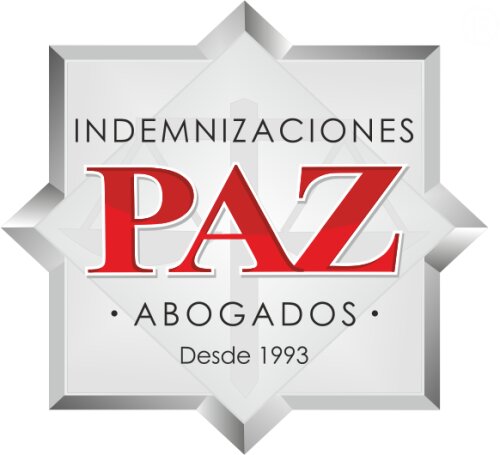Best Water Law Lawyers in Pasto
Share your needs with us, get contacted by law firms.
Free. Takes 2 min.
List of the best lawyers in Pasto, Colombia
About Water Law in Pasto, Colombia
Water Law in Pasto, Colombia, is an essential area of legal practice that governs the use, management, and protection of water resources within the region. As a city located in the Andean highlands with various rivers and water sources, Pasto faces unique challenges related to the allocation, conservation, distribution, and quality of water. The legal framework for Water Law is rooted both in Colombia’s national legislation and in regional regulations set by the Department of Nariño and local authorities. Water Law not only addresses the rights and responsibilities of water users but also ensures compliance with environmental standards and the public interest in sustainable resource management.
Why You May Need a Lawyer
There are several situations where obtaining legal advice in the field of Water Law can be crucial for individuals, communities, and businesses in Pasto:
- Conflicts over access to or ownership of water sources such as rivers, streams, or springs
- Disputes regarding water rights for agricultural, industrial, or personal use
- Issues with water supply companies or public utilities
- Concerns about pollution, contamination, or illegal extraction of water
- Obtaining permits or concessions for water use
- Complying with local and national water conservation regulations
- Participating in community water boards or user associations
- Challenging governmental decisions about water management or infrastructure projects
- Seeking compensation for damages from water-related environmental harm
- Dealing with water sanitation and public health regulations
A lawyer can help interpret complex laws, represent you in administrative or judicial proceedings, and protect your legal rights regarding water use and quality.
Local Laws Overview
In Pasto, Water Law is shaped by several legal instruments:
- National Constitution of Colombia: Declares water as a public good and a fundamental right, with the state responsible for its management and regulation.
- Law 9 of 1979: Establishes general rules for environmental health, including the prevention of water pollution and the regulation of water usage.
- Law 373 of 1997: Focuses on the efficient use and conservation of water, making it mandatory for users to implement conservation plans.
- Decree 1541 of 1978: Regulates water use permits (concessions), defining processes and obligations for individuals or entities wishing to use natural water resources.
- Regional Environmental Authority (CORPONARIÑO): Has significant authority to issue, control, and monitor water use concessions and enforce environmental regulations in Pasto and Nariño.
- Municipal ordinances: May further detail procedures for community access, protection of springs, rainwater harvesting, and local sanctions for violations.
Understanding and complying with these laws, as well as keeping up with new regulations, is critical to avoid penalties and ensure responsible water resource management.
Frequently Asked Questions
What is a water concession and when do I need one in Pasto?
A water concession is a legal permit granted by the local environmental authority, CORPONARIÑO, allowing the use of public water sources for specific purposes. You need one if you plan to use river, stream, spring, or groundwater for agricultural, industrial, or large-scale personal use.
Who owns water resources in Pasto?
All surface and underground water resources are considered public goods. Ownership and management belong to the state, but individuals and organizations can be granted limited rights to use water under government regulation.
Can I be fined for using water without a permit?
Yes, extracting or using water without the required legal authorization can result in significant fines and the suspension of your activities.
What should I do if my water source gets polluted?
You should report the incident immediately to CORPONARIÑO and the city’s environmental or health authorities. Legal action may be necessary to stop pollution and seek compensation.
Is water a human right in Pasto?
Yes, according to Colombia’s national constitution and local regulations, access to clean water is recognized as a fundamental human right.
How can I participate in community decisions about water?
Residents can join or form water user associations or community water boards, which play a role in local management and decision-making processes about water sources.
What are my obligations as a water user?
You must use water efficiently, prevent waste or contamination, comply with your concession’s terms, pay applicable fees, and contribute to conservation plans.
Who regulates water services in Pasto?
The provision of potable water and sanitation services is regulated by the municipal authorities and CORPONARIÑO, with oversight from the Superintendence of Public Services (Superintendencia de Servicios Públicos Domiciliarios).
Can I collect rainwater for personal use?
Generally, yes, individuals are permitted to collect rainwater for domestic purposes, but community or building-level installations may require compliance with local regulations or permits.
What happens if development projects affect my water access?
If public or private projects impact your right to water, you can file complaints and legal actions with environmental authorities and seek legal recourse for potential damages or required mitigation.
Additional Resources
For further guidance and official procedures, consider contacting or consulting the following:
- CORPONARIÑO: Regional environmental authority responsible for water use permits and enforcement in Nariño.
- Secretaría de Ambiente y Desarrollo Sostenible de Pasto: Municipal office for environmental management and regulation.
- Superintendencia de Servicios Públicos Domiciliarios: National regulator for public utility services, including water supply.
- Procuraduría Ambiental y Agraria: Office of the Environmental and Agrarian Prosecutor, which can address complaints and legal conflicts related to water and the environment.
- Community water boards (Juntas de Acueducto y Alcantarillado): Local organizations managing water distribution in some neighborhoods and rural areas.
- Local universities and legal aid clinics: Can provide free or low-cost legal support for cases related to Water Law.
Next Steps
If you need legal assistance regarding Water Law in Pasto, you should consider the following steps:
- Document your situation thoroughly, including permits, correspondence, or evidence of disputes or harm
- Consult with a specialized Water Law attorney or seek advice from a local legal aid clinic
- Contact relevant local authorities such as CORPONARIÑO for official guidance or to initiate administrative procedures
- If necessary, consider mediation or community dispute resolution before resorting to court action
- Remain informed about your rights and obligations under national and local water laws
Acting promptly and seeking expert legal advice is essential to protecting your rights, ensuring compliance, and effectively managing conflicts related to water resources in Pasto.
Lawzana helps you find the best lawyers and law firms in Pasto through a curated and pre-screened list of qualified legal professionals. Our platform offers rankings and detailed profiles of attorneys and law firms, allowing you to compare based on practice areas, including Water Law, experience, and client feedback.
Each profile includes a description of the firm's areas of practice, client reviews, team members and partners, year of establishment, spoken languages, office locations, contact information, social media presence, and any published articles or resources. Most firms on our platform speak English and are experienced in both local and international legal matters.
Get a quote from top-rated law firms in Pasto, Colombia — quickly, securely, and without unnecessary hassle.
Disclaimer:
The information provided on this page is for general informational purposes only and does not constitute legal advice. While we strive to ensure the accuracy and relevance of the content, legal information may change over time, and interpretations of the law can vary. You should always consult with a qualified legal professional for advice specific to your situation.
We disclaim all liability for actions taken or not taken based on the content of this page. If you believe any information is incorrect or outdated, please contact us, and we will review and update it where appropriate.









